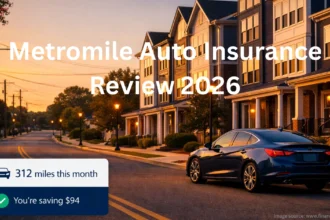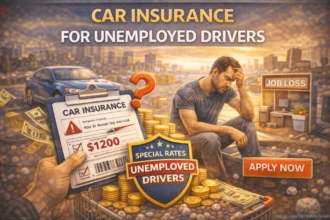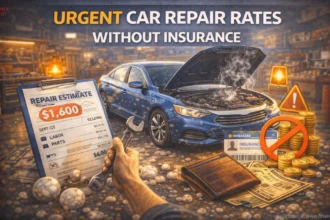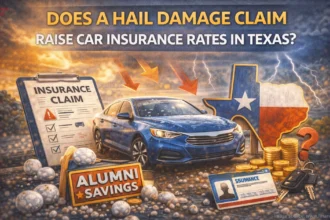
Introduction: Why 87% of Americans Are Missing Out on Major Insurance Savings
If you’re paying for home and auto insurance separately, you could be leaving hundreds of dollars on the table every year. Recent industry data shows that bundling home and auto insurance policies can save the average American household up to $466 annually, yet most consumers still purchase these policies separately.
Here’s the reality: Insurance companies want your business so badly that they’re willing to offer substantial discounts (sometimes up to 30%) just to keep both your home and auto policies under one roof. But with dozens of providers claiming to offer the “best” bundles, how do you separate marketing hype from genuine value?
This comprehensive guide breaks down the best home and auto insurance bundles for 2025, revealing which providers offer the deepest discounts, strongest coverage options, and most reliable customer service.
The Problem: Why Home and Auto Insurance Costs Are Skyrocketing in 2025
Before diving into solutions, it’s crucial to understand why insurance premiums have become such a financial burden for American families:
Rising Insurance Costs by the Numbers
- Home insurance premiums increased 34% nationwide between 2019-2024
- Auto insurance rates jumped 26% in the past two years alone
- Climate-related claims have driven home insurance costs up 15% in high-risk states
- Inflation and supply chain issues increased vehicle repair costs by 23%
Common Insurance Mistakes Costing You Money
Most Americans make at least one of these costly errors:
- Automatically renewing policies without shopping around (costing an average of $300+ annually)
- Choosing the cheapest option without considering coverage gaps
- Missing out on available discounts due to poor communication with agents
- Buying home and auto insurance from different companies, forgoing bundling discounts
What Are Home and Auto Insurance Bundles?
A home and auto insurance bundle occurs when you purchase both your homeowners (or renters) insurance and car insurance from the same provider. While these remain separate policies with different policy numbers, bundling them typically unlocks significant multi-policy discounts.
How Bundling Discounts Work
Insurance companies calculate bundling discounts differently:
- Percentage-based: 10-30% off one or both policies
- Dollar amount: Fixed savings (like State Farm’s up to $1,356 annually)
- Tiered discounts: Larger discounts for multiple policy types (auto, home, umbrella, etc.)
The average bundling discount across major insurers is 14%, translating to approximately $466 in annual savings for the typical American household.
The Best Home and Auto Insurance Bundles for 2025
Based on our analysis of bundling discounts, customer satisfaction scores, financial strength ratings, and coverage options, here are the top providers:
1. State Farm – Best Overall Bundle (5.0/5 Stars)
Bundling Discount: Up to $1,356 annually (23% average)
Coverage Areas: All 50 states plus Washington D.C.
Financial Strength Rating: A++ (Superior)
Why State Farm Leads:
- Highest average bundling discount (23%) among major insurers
- Extensive agent network with personalized service
- Strong customer satisfaction ratings for auto insurance
- Competitive rates for good drivers
Standout Features:
- Drive Safe & Save program offers additional discounts up to 30%
- Free smart home device to help prevent house fires
- Extended replacement cost coverage for homes
- Great auto insurance renewal discount (14%) after three consecutive years
Best For: Drivers seeking maximum bundling savings with strong local agent support
2. USAA – Best for Military Families (5.0/5 Stars)
Bundling Discount: Up to 10%
Coverage Areas: All 50 states plus Washington, D.C.
Financial Strength Rating: A++ (Superior)
Eligibility: Military members, veterans, and immediate families only
Why USAA Excels:
- Cheapest average rates for good drivers
- Exceptionally low complaint levels for both auto and home insurance
- Military-specific coverage understanding
- One-stop shop for insurance, banking, and investing
Standout Features:
- Replacement cost coverage for belongings is included
- Military uniform coverage with no deductible
- Accident forgiveness and new car replacement are available
- No banned dog breeds list
Best For: Military community members prioritizing low rates and specialized service
3. Amica – Best Customer Satisfaction (4.75/5 Stars)
Bundling Discount: Up to 30%
Coverage Areas: Most states (excludes Alaska and Hawaii for home insurance)
Financial Strength Rating: A+ (Superior)
Why Amica Stands Out:
- Highest potential bundling discount (up to 30%)
- Outstanding customer satisfaction scores
- Significantly fewer consumer complaints than expected
- Dividend policies that can return up to 20% of annual premiums
Standout Features:
- Online claims filing and tracking
- Upgraded coverage packages are available
- Excellent customer service reputation
- Comprehensive coverage options
Best For: Customers prioritizing exceptional service and maximum potential savings
READ ALSO: How to Save on Car Insurance in 2025 (Even If You’re a New Driver)
4. Nationwide – Best for Low-Cost Coverage (4.7/5 Stars)
Bundling Discount: Up to 20%
Coverage Areas: Most states (excludes Alaska, Florida, Hawaii, Louisiana, Massachusetts, New Jersey, New Mexico)
Financial Strength Rating: A+ (Superior)
Why Nationwide Ranks High:
- Competitive rates for both auto and home insurance
- Strong 15% average bundling discount
- Low complaint levels across both policy types
- No banned dog breeds list
Standout Features:
- Accident forgiveness, new car replacement, and vanishing deductible options
- “Dwelling replacement cost plus” provides extended home coverage
- Multiple discount opportunities
- SmartRide telematics program for additional auto savings
Best For: Budget-conscious consumers seeking reliable coverage at competitive rates
5. Auto-Owners – Best for Low Complaints (4.2/5 Stars)
Bundling Discount: 10% average
Coverage Areas: 26 states
Financial Strength Rating: A+ (Superior)
Why Auto-Owners Makes the List:
- Exceptionally low complaint levels for both auto and home insurance
- Competitive base rates
- Strong coverage options and add-ons
- Single deductible option for same-event claims
Standout Features:
- If one event damages both the home and the car, you pay only one deductible
- Extended and guaranteed replacement cost options for homes
- Accident forgiveness and gap insurance are available.
- Diminishing deductible programs
Best For: Customers prioritizing hassle-free claims experiences and reliable service
Comprehensive Comparison: Best Home and Auto Insurance Bundles
| Provider | Bundling Discount | Average Annual Savings | Forbes/NerdWallet Rating | States Available | Key Advantage |
| State Farm | Up to $1,356/year | $787 | 5.0/5.0 | All 50 + DC | Highest dollar savings |
| USAA | Up to 10% | $185 | 5.0/5.0 | All 50 + DC | Military-specific benefits |
| Amica | Up to 30% | Varies | 4.75/5.0 | 48 states | Highest percentage discount |
| Nationwide | Up to 20% | $516 | 4.7/4.0 | 43 states | Low-cost coverage |
| Auto-Owners | 10% | $214 | 4.2/5.0 | 26 states | Fewest complaints |
| Erie | 15% | $535 | 4.7/N/A | 12 states + DC | Excellent add-on coverage |
| Travelers | Varies | $484 | 4.1/5.0 | Most states | Eco-friendly discounts |
What Affects Your Home and Auto Insurance Bundle Rates?
Understanding rate factors helps you maximize savings and choose the right coverage:
Auto Insurance Rate Factors
Driver-Related Factors:
- Age and driving experience
- Driving record and claims history
- Credit score (in most states)
- Annual mileage
- Location and garaging address
Vehicle-Related Factors:
- Make, model, and year
- Safety features and anti-theft devices
- Vehicle value and repair costs
- Usage type (personal, business, rideshare)
Home Insurance Rate Factors
Property-Related Factors:
- Home age, construction type, and materials
- Dwelling value and replacement cost
- Location and local claim frequency
- Proximity to fire stations and water sources
- Security systems and safety features
Coverage-Related Factors:
- Deductible amounts
- Coverage limits and types
- Additional endorsements
- Claims history
Personal Factors:
- Credit score (where allowed)
- Insurance history
- Occupation
- Home-based business activities
READ ALSO: American National Car Insurance Review: Is It Worth It in 2025?
How to Compare Home and Auto Insurance Bundle Rates
Step 1: Gather Your Information
Before requesting quotes, compile:
- Current policy declarations pages
- Vehicle information (VIN, annual mileage, safety features)
- Home details (square footage, construction type, recent improvements)
- Desired coverage limits and deductibles
- List of current discounts
Step 2: Request Quotes from Multiple Providers
Get quotes from at least 3-5 companies, including:
- Large national insurers (State Farm, Allstate, Geico)
- Regional specialists (Erie, Auto-Owners)
- Direct insurers (USAA, Amica)
- Local/independent agents representing multiple companies
Step 3: Compare Apples to Apples
Ensure all quotes include:
- Same coverage limits for liability, comprehensive, and collision
- Identical deductibles for both auto and home policies
- Similar endorsements and additional coverages
- All applicable discounts clearly itemized
Step 4: Evaluate Beyond Price
Consider these factors beyond premium costs:
- Financial strength ratings (AM Best, Moody’s, S&P)
- Customer satisfaction scores (J.D. Power, Consumer Reports)
- Complaint ratios (NAIC complaint index data)
- Claims handling reputation and local agent availability
- Digital tools and mobile app functionality
Expert Tips to Lower Your Bundle Costs Without Losing Coverage
Immediate Cost-Reduction Strategies
1. Increase Deductibles Strategically
- Raising auto deductibles from $500 to $1,000 can save 10-15%
- Consider higher home deductibles if you have emergency savings
- Balance savings against out-of-pocket costs in claims scenarios
2. Maximize Available Discounts
- Multi-policy discount: 5-25% for bundling
- Safe driver discounts: Clean driving record rewards
- Home security discounts: Alarm systems, deadbolts, smoke detectors
- Vehicle safety discounts: Anti-lock brakes, airbags, anti-theft devices
- Good student discounts: 3.0+ GPA for young drivers
- Defensive driving discounts: Course completion certificates
3. Optimize Coverage Levels
- Drop unnecessary coverage on older vehicles (comprehensive/collision when repair costs exceed premiums)
- Adjust liability limits based on net worth and state minimums
- Review personal property limits and eliminate over-insurance
Long-Term Savings Strategies
4. Improve Your Risk Profile
- Maintain good credit: Can save 10-25% in most states
- Avoid claims when possible (pay small repairs out-of-pocket)
- Complete driver safety courses: Often provide ongoing discounts
- Install security systems: Modern systems can reduce premiums significantly
5. Annual Policy Review
- Shop around annually: Rates change, and loyalty doesn’t always pay
- Update coverage as home values and vehicle values change
- Remove unnecessary riders and endorsements
- Bundle additional policies (umbrella, boat, RV) for greater discounts
Common Mistakes to Avoid When Choosing Insurance Bundles
Mistake #1: Choosing Based on Price Alone
The Problem: The cheapest bundle might have inadequate coverage or poor claims service.
The Solution: Balance cost with coverage quality, financial strength ratings, and customer service scores. A slightly higher premium from a reputable company can save thousands during a major claim.
Mistake #2: Not Reading Policy Details
The Problem: Bundling doesn’t always mean identical terms. Your auto and home policies might have different claim processes, deductibles, or coverage exclusions.
The Solution: Review both policy documents carefully. Ask your agent to explain any differences in coverage, claims procedures, or policy terms between bundled policies.
Mistake #3: Assuming Bundling Is Always Cheaper
The Problem: Sometimes separate policies from different companies cost less than bundled coverage.
The Solution: Always compare bundled quotes against separate policy quotes. If separate policies save more than the bundling discount, don’t bundle just for convenience.
Mistake #4: Ignoring Financial Strength Ratings
The Problem: A company offering great rates might have poor financial stability, risking claim payment ability.
The Solution: Only consider companies with AM Best ratings of A- or higher. Check recent financial news and regulatory actions against potential insurers.
Mistake #5: Not Updating Coverage Regularly
The Problem: Life changes (new vehicles, home improvements, marriage, children) affect insurance needs, but many people forget to update policies.
The Solution: Review coverage annually and after major life events. Notify your insurer about changes that might affect rates or coverage needs.
Should You Bundle Your Home and Auto Insurance? Decision Framework
Bundle If You:
- Can save 10% or more compared to separate policies
- Want simplified billing and policy management
- Have found a financially strong company with good customer service
- Qualify for additional multi-policy discounts (umbrella, boat, etc.)
- Prefer dealing with one agent for all insurance needs
Consider Separate Policies If:
- You can save significantly with different companies for each policy
- Your preferred auto insurer doesn’t offer competitive home insurance (or vice versa)
- You have unique coverage needs better served by specialists
- You’re in a high-risk category for one policy type but not the other
- You prefer shopping independently for each coverage type
How to Switch to a Bundle (Step-by-Step Process)
Phase 1: Research and Quote (Weeks 1-2)
- Inventory current coverage and satisfaction levels
- Research top bundle providers in your state
- Request quotes from 3-5 companies
- Compare coverage details and total costs
- Check financial ratings and customer reviews
Phase 2: Selection and Application (Week 3)
- Choose your preferred provider based on total value
- Work with agent to finalize coverage details
- Set policy effective dates (typically 2-4 weeks out)
- Review all policy documents before signing
- Arrange payment methods for new policies
Phase 3: Transition (Week 4)
- Confirm new policies are active before canceling old ones
- Cancel previous policies effective the same day new ones begin
- Update automatic payments and remove old policy payment methods
- Notify your mortgage lender of home insurance changes
- Update emergency contacts and beneficiaries as needed
Phase 4: Optimization (Month 2+)
- Review first statements for accuracy
- Set up online accounts and mobile apps
- Confirm all discounts are properly applied
- Schedule annual review reminder
- Document agent contact information and policy numbers
State-Specific Considerations for Insurance Bundles
High-Cost States (California, Florida, New York, Texas)
These states typically have higher insurance costs due to:
- Dense population and traffic congestion
- Natural disaster exposure (hurricanes, earthquakes, wildfires)
- Higher litigation rates and medical costs
- Strict regulatory requirements
Bundle Strategy: Focus on companies with strong regional presence and competitive rates in your specific state.
Low-Cost States (Maine, Vermont, Wisconsin, Iowa)
These states often offer lower insurance rates due to:
- Less severe weather and natural disaster risk
- Lower crime rates and vehicle theft
- Rural driving conditions with fewer accidents
- Less litigation and lower medical costs
Bundle Strategy: Don’t sacrifice coverage for minor premium differences—adequate protection is crucial even in low-risk areas.
Weather-Prone States (Texas, Florida, Oklahoma, Kansas)
Special considerations for high-weather-risk areas:
- Comprehensive coverage becomes more critical
- Deductible strategies should account for frequent claims potential
- Additional coverage (flood, wind, hail) may be necessary
- Claims handling speed becomes a key selection factor
The Future of Home and Auto Insurance Bundles
Technology Trends Shaping Bundles
Telematics and Smart Home Integration:
- Usage-based auto insurance becoming standard
- Smart home devices providing real-time risk monitoring
- AI-powered claims processing improving customer experience
- Predictive analytics enabling more accurate risk assessment
Digital-First Customer Experience:
- Mobile-first policy management platforms
- Instant quote and binding capabilities
- Virtual claims adjusting and photo-based estimates
- Chatbot and AI customer service for routine inquiries
Market Changes Affecting Bundles
Climate Change Impact:
- Increased weather-related claims driving up home insurance costs
- Geographic risk reassessment changing availability and pricing
- New coverage types emerging (cyber, climate-related)
- Regulatory changes affecting coverage requirements
Industry Consolidation:
- Larger companies acquiring regional specialists
- Technology companies entering insurance markets
- Direct-to-consumer models challenging traditional agent networks
- Partnerships between insurtech and established carriers
Frequently Asked Questions About Home and Auto Insurance Bundles
Q: How much can I realistically save by bundling?
A: The average American household saves $466 annually by bundling, but individual savings vary widely. State Farm customers can save up to $1,356 per year, while other providers offer 10-30% discounts. Your actual savings depend on your current rates, chosen coverage levels, and available discounts.
Q: Is bundling always cheaper than separate policies?
A: No. While bundling often provides savings, sometimes you can get better rates by purchasing auto and home insurance from different companies. Always compare bundled quotes against separate policy quotes to determine your best option.
Q: Can I bundle with any insurance company?
A: Not all insurance companies offer both auto and home insurance. Some auto insurers partner with other companies for home insurance, which may still provide discounts but won’t offer the convenience of single-company management.
Q: What happens if I need to file claims on both policies?
A: If the same event damages both your home and car (like a severe storm), many insurers offer single-deductible benefits for bundled policies. You’d pay only one deductible instead of separate deductibles for each policy.
Q: How often should I review my bundle?
A: Review your bundled policies annually and after major life changes (moving, marriage, new vehicles, home improvements). Insurance rates and offerings change frequently, so regular review ensures you’re getting the best value.
Q: Can I add other policies to my bundle?
A: Many insurers offer additional bundling opportunities with umbrella insurance, boat coverage, RV insurance, and business policies. Each additional policy typically increases your multi-policy discount.
Q: What if I’m not satisfied with my bundled coverage?
A: You can typically cancel bundled policies independently, though you’ll lose the bundling discount. Some companies require you to maintain both policies to keep the discount, so review terms before making changes.
Conclusion: Your Next Steps to Bundle Success
Choosing the best home and auto insurance bundle requires balancing cost savings, coverage quality, and customer service. Based on our comprehensive analysis:
- State Farm offers the highest potential dollar savings (up to $1,356 annually)
- USAA provides exceptional value for military families
- Amica delivers the best customer experience with up to 30% discounts
- Nationwide combines competitive rates with solid coverage options
Take Action Today:
- Get quotes from our top 3 recommendations for your situation
- Compare bundled vs. separate policy costs to confirm savings
- Review coverage details to ensure adequate protection
- Check financial ratings and customer satisfaction scores
- Make the switch before your current policies renew
Remember: The best bundle is one that provides comprehensive protection at a fair price from a financially stable company with excellent customer service. Don’t let the complexity of insurance shopping prevent you from securing better coverage and significant savings.
Ready to start saving on your home and auto insurance? Get personalized quotes from top-rated providers now.
Last Updated: July 2025 | Sources: National Association of Insurance Commissioners, J.D. Power, AM Best, Forbes Advisor, NerdWallet, Quadrant Information Service





